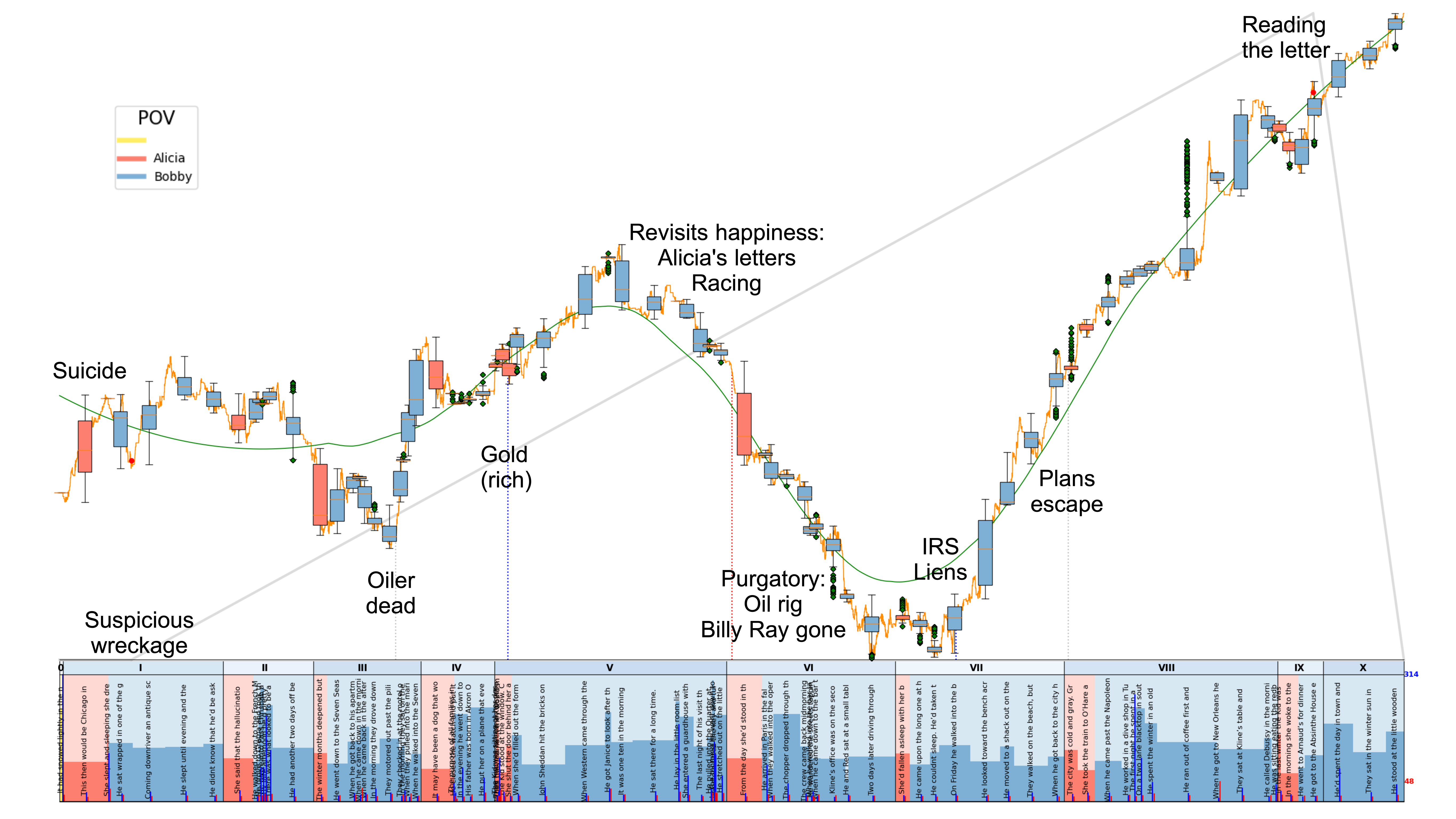Agenda
- Why We're Here / Roundtable Rules
- Introduction to Literary Forensics
- Group Discussion
- Further Study
Why We're Here
We writers want to improve our craft
by reading like a writer
We learn from each other
using Literary Forensics
Roundtable Rules
Always refer back to the book
Practice active listening & serendipity
Every feeling and observation is valid...
but not every conclusion
Always refer back to the book
Reading Teaches Writing
Meet today's author: Cormac McCarthy
- 1933 - 2023
- Author of 12 Novels
- The Orchard Keeper (1965), Outer Dark (1968)
- Child of God (1973), Suttree (1979)
- Blood Meridian (1985), All the Pretty Horses (1992)
- The Crossing (1994), Cities of the Plain (1998)
- No Country for Old Men (2005), The Road (2006)
- The Passenger (2022), Stella Maris (2022)
-
- In 2003, literary critic Harold Bloom named McCarthy as one of the four major living American novelists, alongside Don DeLillo, Thomas Pynchon, and Philip Roth. Bloom's 1994 book The Western Canon had listed Child of God, Suttree, and Blood Meridian among the works of contemporary literature he predicted would endure and become "canonical". Bloom reserved his highest praise for Blood Meridian, which he called "the greatest single book since Faulkner's As I Lay Dying."
What do you feel?
What in the book elicited that feeling?
Every feeling and observation is valid...
but every conclusion should be questioned
We practice serendipity
- nothing is too crazy
Always refer back to the book
What do you notice?

Writing The Passenger
- It was thought that McCarthy first began writing The Passenger in the 1970s, working on it intermittently over the following decades. However, according to The Cambridge Companion to Cormac McCarthy, he began drafting the novel in 1980.
- In 2009, notes relating to his next novel were found in the McCarthy archive at Texas State University. McCarthy told the Wall Street Journal that same year that his next book would be "set in New Orleans around 1980. It has to do with a brother and sister. When the book opens she's already committed suicide, and it's about how he deals with it. She's an interesting girl."
- In 2015, the novel The Passenger was officially announced at a multimedia event hosted in Santa Fe by the Lannan Foundation. The book was influenced by his time among scientists; it has been described by S.F.I. biologist David Krakauer as "full-blown Cormac 3.0—a mathematical [and] analytical novel".
Stats & Background
- Marketing: Psychological Fiction, (Family) Saga Fiction, Literary Fiction, Metaphysical (& Visionary) Fiction
- Genre: Realistic Historical Arch-Plot Long-Form
- Print Pages: 400; Word count: 123,825;
Reading Grade: 6th
Avg. wds/sent.: 7.72; Lexical Density: 43.82; Flesch Reading Ease: 85.19 - POV: Alicia, Bobby
Person: 3rd; Tense: Past - Publish date: October 25, 2022
- Publisher: Knopf
- Audio book length: (12 hours 44 mins); Narr. MacLeod Andrews, Julia Whelan
- Writing for The New York Times, critic John Jeremiah Sullivan noted that the Thalidomide Kid (who is referred to simply as "the Kid" in nearly all but the very first instance in the book, with just one subsequent reference later in the story) may be a reference to the protagonist of McCarthy's 1985 novel Blood Meridian, writing that he may represent a "zombified summoning of the earlier one, only in this incarnation he has witnessed the 20th century and been thoroughly damaged by it."

